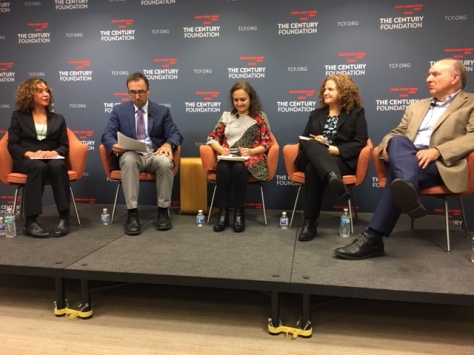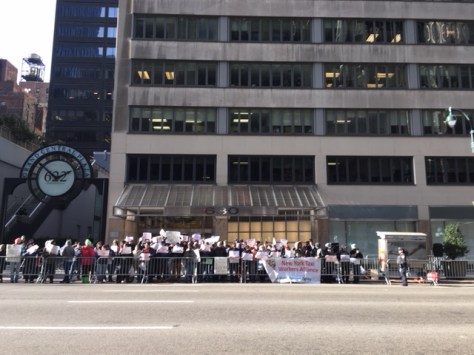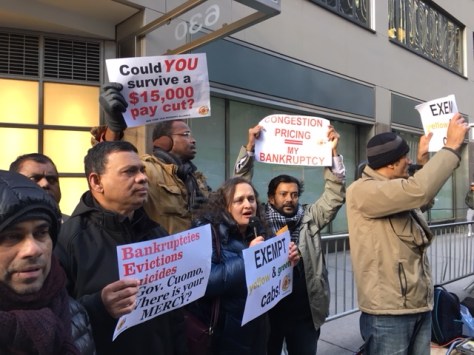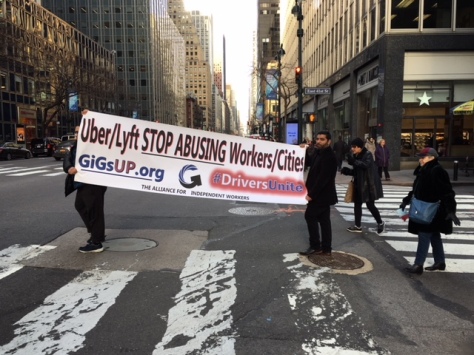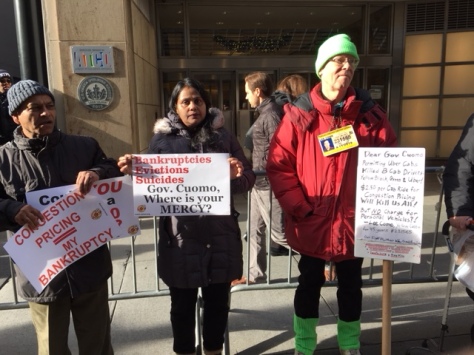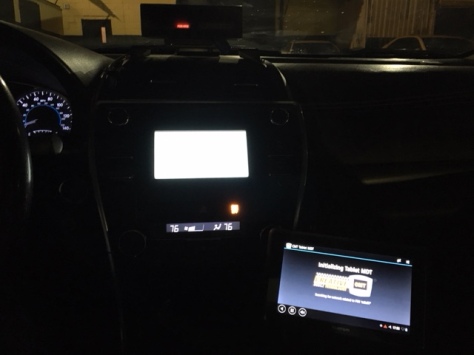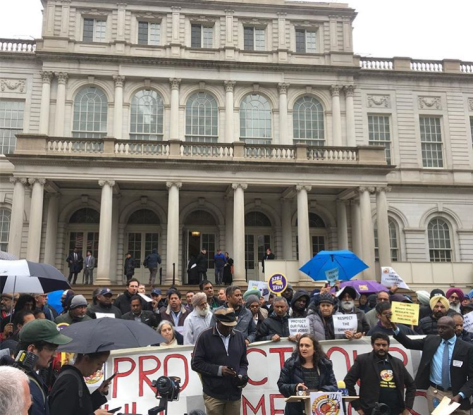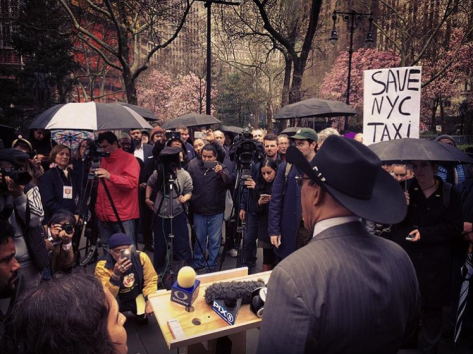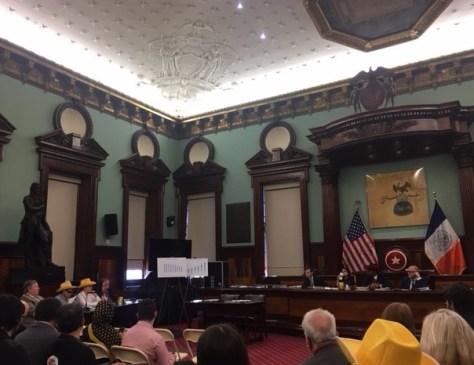
Apologies to Letterman
Sure enough, it’s been a year since I finished watching all 114 Episodes of Taxi. With the exception of Frasier, I had never gone through an entire run of a TV show on DVD from start to finish, to see how many story arcs there were and how they were wrapped up. While Taxi didn’t have a final installment worthy of the show that won 18 Emmy Awards, there were enough episodes and moments that were worth remembering, especially to this driver. While work has been relatively routine since my return from the Grand Canyon State, I thought that it was time for a Top 10 list of the best episodes of that landmark series and although I won’t be writing for any late-night talk shows anytime in the near future, I thought that this site would be an appropriate place for it in the midst of court orders, meetings, and crimes against yellow cab drivers making their way into the news once again.
So without any further ado, here are the Top 10 episodes of Taxi, with their original air date where applicable:
10) Who Will Be Miss Taxi?
Elaine (Marilu Henner) is totally shocked one day to find out that the guys in the garage have seen her enter a contest run by a New York Tabloid to become the next “Miss Taxi”. How could she be pictured in the paper when she never entered the contest? Simple. Louie (Danny DeVito) entered her into it and thought that the ensuing publicity would be good for the garage. Of course, Elaine advances in the contest even though she vows to stand up and speak about how the whole process objectifies women and is nothing more than a sexist, shallow contest, but when she has the chance, she cannot stand up for her convictions. Even upon winning the award, the City never knows how she feels and only the people in the garage find out at the end about her distaste for it, with the speech given from the hallowed turf of Louie’s cage. At that point, she’s on a roll but the ensuing passengers that come and go from her Taxi don’t care as she rambles on about her opinion regarding the process, as the words become drivel that fills their lives.
Don’t remember this episode? There’s a good reason why:
It never aired.
According to Taxi – The Official Fan’s Guide by Frank Lovece and Jules Franco, this was a story outline for an episode that was never filmed. It later became the basis for the “Who Will Become Miss Barmaid?” for Cheers, which is where many of the writers and producers moved on to once Taxi went off the air in 1983. This episode could have been a classic for so many reasons – Elaine mentions on a New York morning show that she thinks one of the drivers “is pretty cute” but never states who, the tension of Elaine blowing the whistle on the entire contest only comes to head to those at the Sunshine Cab Company, and the ending where Elaine turns out to be the only one who cares about the superficiality of everything. While there was never a “Miss Taxi” contest in New York, old time residents of the City will fondly recall the “Miss Subways” promo that ran underground for years before becoming discontinued in the 1970’s. It’s hard to imagine anything like that now happening given how few women dive a Taxi and proliferation of eye-candy rating sites on the internet but this was a homage to the contests and pageants that were so important to American pop culture in the 20th century.
9) Tony’s Sister and Jim – 11/26/80
Tony (Tony Danza) has a plan to set up his sister Monica (Julie Kavner) with Alex (Judd Hirsch) since she’s visiting from Spokane and he thinks they’d hit it off together. Unfortunately, a little something gets in the way, which turns out to be none other the resident burnout Jim (Christopher Lloyd). Jim and Monica hit it off in the garage while Alex steps away to get ready. Harvard-dropout Jim’s refined side comes through for the first time as we see him talk classical music and have a normal conversation with the divorced-Monica. Although we don’t see his instrumental talent come out as we do later in Elegant Iggy, he holds his own at the French restaurant they later eat at and at her apartment when the couple are spending time together. Naturally, this upsets Tony since he can’t see what they have in common and still thinks that the more level-headed Alex would be better for his sister. After a nice demonstration of his muscles when he picks up Jim and nearly tosses him out, Monica restores order to the ordeal as all is right in the world and the two guys chime in on bottles to Monica’s flute playing as the episode ends.
The highlight of the episode is seeing a post-Rhoda and pre-Simpsons Julie Kavner in a simple role and a potential love interest for Reverend Jim. Throughout the series, Jim is seen as a misunderstood loner who means well and sees the world through a quite-unfiltered lens but underneath, has a soft side and an odd sense of refinement. This is really the first time it comes out and even though Tony’s lack of intellect makes itself known here, it’s apparent that he has not been hit in the head too many times as a boxer since he backs from protecting Monica and gives in to her desires, even if he still doesn’t see eye-to-eye with Jim. It’s a tender moment that shows that Jim is one of the gang, although he never fully acclimates himself with the others during the duration of the show.

Two more of your average cabdrivers in 2012
8) A Grand Gesture – 5/25/83
As we earlier see in Jim’s Inheritance, Jim has quite a bit of money to his name now that his father has passed on. After giving a homeless person that wandered into the garage $1,000, Jim repeats the favor to the other drivers on the condition that they don’t hold onto the money but instead, give it to someone who could make good use of it. Alex hands it off to an elderly passenger in his Taxi, Elaine sits with one of her children and debates how to best split it up, Tony buys a color T.V. for an old friend of his who’s homebound, and Louie has the hardest time giving it away since his assistant Jeff (J. Alan Thomas) can’t grasp that Louie would ever care for anybody but himself. After much arguing, Jeff finally takes the money as they hug and Jim leans in and smiles from the background.
There are so many reasons why this deserves to be on any Taxi fan’s short list of great episodes. As I alluded to earlier, Taxi was cancelled twice on two different networks and the second time around was relatively abrupt, with a true final episode never being written. None of the proverbial loose ends were ever tied up and instead, we’re left with this. The notion behind Jim’s generosity would later be seen in the “Pay it forward” idea that Oprah Winfrey espoused but here, we get a deep grasp into the essence of each character. All of them followed Jim’s advice with different results. Tony finds an old friend and spent it all on a T.V. that today, looks hopeless outdated. This could possibly be in allusion to the conclusion of Zen and The Art of Cabdriving as the strongest message that Taxi sent during it’s 5-season run. Seeing the tears run down Walt’s (Scatman Crothers) face as he’s taken back by the generosity stood as one of the most dramatic moments on the show…until Louie attempts to get rid of his $1,000 allotment a little bit later on.
Jeff was always seen as a reluctant yes-man to Louie’s overblown dispatcher and de facto boss at the Sunshine Cab Company. It seemed like he spoke more here than during all of his other appearances over the years and to see him stand up for his principles was quite touching. What brought it to the next level was that this moment of confidence came at a time where Louie actually let his guard down and actually thought of someone else for a change.
7) Alex’s Old Buddy – 1/29/83
Alex brings a dog into the garage that has been living with his sister for years, but the 19-year old canine is on his last legs and is going everywhere with Alex before he moves onto the boneyard in the sky. Simka (Carol Kane) even comes by to give the dog a blessing from the old country but the good wishes are to little avail: Buddy is dying and Alex’s attempt to show that he’s alright backfires when the dog fails to perform the trick that he’s most known for. Alex brings him to the Vet to find out the bad news out but only uses that as a reason to let Buddy take over his life. He stays home with the dog as his date mistakes his food for that of humans and in a another funny scene afterwards, Buddy has become Alex’s resident-in-cab. At the garage, Louie suggests that it may be time to humanely end it for the canine but Jim interjects and offers a test. If he can do the trick, it’s not time for him to go. In one of the most dramatic and tension-filled moments on Taxi, Alex “shoots” Buddy so he can play dead and as all the drivers look on in silence, the dog slowly performs as he rolls over. The joy is short-lived however as the last scene in this episode shows Alex crying alone after putting having Buddy put down, even with Louie unable to help out his top performing-cabdriver and closest friend.
This episode is so different from that of so many other sitcoms that it’s almost impossible to know where to begin. Usually, new characters are brought in when ratings go into the tank but this was during Taxi’s final season on NBC and Buddy is only shown here. The tried-and-true formula of a problem being overcome here doesn’t apply either, as grief quietly takes over Alex before the credits roll. For all the joy, the plot possibilities, and the humor that a canine could have brought onto the set, it’s the image of Alex crying alone that resonated with viewers when all was said and don. The girlfriend he has and the passenger in his cab that meets Buddy are forgotten but the theme of him being a consummate, lonely cabdriver held the most true when he ends the episode on his own, as ultimately turned out to be the case when the show came to a close a few months later. Most protagonists get the girl, the promotion, and live happily ever after as all the loose ends are sewn up but the only loose end in this episode was the leash that would never be used again by his best friend. Had the series ended on this note, it would have been fitting given that Alex held the same occupation and marital status as when it all began.
6) Elaine’s Strange Triangle – 12/10/80
Another recurring theme on the show was the revolving door of men that Elaine went through during the series’ run, and this episode may have taken the cake for why she remained single throughout it. Over drinks at Mario’s, Tony sets Elaine up with a nice-looking gentlemanly patron that the others think would be good for her. Kirk (John David Carson) and Elaine seem like two people who are made for each other but later on, Kirk admits to Tony that he has a problem:
He’s not attracted to her.
No big deal, right? It wouldn’t be if Kirk wasn’t bi…
…and he wasn’t hot for Tony.
Tony has a hard time admitting this and an even harder time getting it settled so as usual, Alex has to step in to sort things out. He’s the only one that feels that Elaine needs to know the truth and since he wants to get down to the bottom of it, he ends up going with Tony down to the bar that Kirk frequents in order to get him to set the record straight. Sounds relatively straightforward until Alex gets pulled onto the dance floor by a “bear” and hilarity ensues. Tony walks in stunned and stereotypes gets shattered, all in late 1970’s I’m-coming-out vibe softened by a strong dose of comic relief.
This show was the popular at the same time as Soap, which was the first primetime series that featured an openly gay character. It’s a bit of a misnomer that Elaine was in the episode’s title given that she’s not shown at all during the scene that had the audience in stitches but as far as the writers were concerned, it was the men who were the focal points here. Kirk comes across but normal but isn’t, Tony appears to be macho but can’t face the truth when Kirk admits it to him, and once again, Alex tries to be the hero but ends up being a goat in the metaphorical sense. The situation he found himself in doesn’t define him as much as it catches him off-guard and his attempt at humor ends up backfiring, as the men end up liking him more as he tries to stands out from the gay bar attendees. There wasn’t anything uneasy or offending about this episode, but the joke had to be on the main character in order for the taboo to be lifted, which it was as programs and sitcoms in the following years dealt with gay characters much more comfortably.
5) Elaine and the Monk – 12/2/82
Simka brings in her cousin to the garage, a Monk (Mark Blankfield) that is visiting New York on his vacation. He belongs to a monastic order that has taken a vow of silence but since he is away from his monastery, he can talk while on his break. Unfortunately, he only has a week to enjoy the sights and sounds of the big city. Who better to show him the Big Apple than the charming, female cabbie in the garage? Elaine is more than up to it and in a scene that only features the two of them in the garage, they start dancing with each other to an old song as if they were in a 1930’s big-band era film.
The antics go on as they describe at the garage the places that they’ve seen around town. A what’s-what of New York is listed, including the World Trade Center and 5 Ave, but with only descriptions that leave the viewer wondering how much of them they saw as opposed to each other. Alex, on-and-off again with Elaine over the course of the series is jealous of Zifka’s encroachment on his confidant, as she responds that he’s jealous that he doesn’t have anyone in his life. Zifka leaves, stating that he’ll be over her place for dinner during his last night of freedom. At her apartment, we see the two of them getting along while being on the clock the entire time. Because he was late, they didn’t have time for a full meal together and as he’s about to fully express how he feels to her, the alarm sounds and he has to put his robe back on. The episode finishes in silence as they continue off from the dance in the garage and he heads out, back to the old country to continue the vows of his order.
This was Danny Devito’s directorial debut and it showed here, from the overhead camera shot of the dance sequence to his diminished role as Louie. Not that the cast and crew weren’t comfortable with the other directors, but they were so accustomed to working with him that the looseness of the humor and introduction of the new character were apparent to those watching. Zifka and Elaine had real chemistry and instead of the other guys vying for her attention, Zifka lets Elaine take on the reigns and show him the ropes, as his talent for dancing won her over effortlessly. Marilu Henner was a star on Broadway before hitting it big on the small screen and along with her turn in Fantasy Borough, she got to show what she learned on the Great White Way here. DeVito showcases her brilliantly while effortlessly weaving the singing and dancing into the plot and pulling the Cinderella-esque ending, with a glass of champagne substituting for the glass slipper. The silence lets the viewer contemplate what could have been between Elaine and Zifka, as the potential love of her life got away before her feelings for him ran their course.
4) Jim’s Inheritance – 10/7/82
Louie gets a call at the garage and it’s not good – Jim’s father has passed on. Louie tries to break the news as gently as possible to Jim but when told that his father has gone on to a better place, Jim thinks that it’s “Palm Beach” and not the afterlife. Jim goes on to work his shift to take his mind off of what happened and few days later, an Attorney for Jim (Dick Sargent from Bewitched) enters the garage to inform him that his father reinstated Jim into his will. The bad news is that Jim’s brother and sister want him to not have a part of it and instead, want to have him receive part the money through a conservatorship. Jim vows to fight but it’s an uphill battle as the drivers and his Lawyer fail to win the judge over and the money is held back from him. All that he’s given from his Dad is a heavy trunk with a few of his old belongings. Even though Elaine finds it outside of his apartment on her way to see him, Jim wants to open it alone and the interplay between the two polar opposites comes to a head here as Jim takes a serious turn in his mood and is met on by Elaine’s attempt to stand by him through thick and thin. She grants his wish that he’s alone when discovering the contents which happens immediately after she leaves. Jim takes out his overweight Dad’s old suit and puts it on a chair in his apartment, as it quietly falls back on its own. A tape recorder pulled out afterwards is played, which belts out “You are the Sunshine of my Life” by Stevie Wonder, followed by an ending in a fade-out.
“Reverend” Jim Ignatowski stole the show from the moment he joined the cast full-time but this was one of the few times where we got to see the dramatic side of Christopher Lloyd shine through. Like Jeff Conaway and Marilu Henner, Lloyd started out on Broadway (actually, Off-Broadway) and later moved on to film and television. It was a testament to the show’s writers that they were able to show the seriousness that his character required here and have it measure up to the burnt-out persona that he was best-known for on the show. It made Latka’s (Andy Kaufman) wedding in Paper Marriage that much better when he performed the wedding in straightface, even though his denim outfit and lack of official title only made the farce that much greater. In Jim’s Inheritance, he has a hard time coming to grips with the loss of his Dad, even though he was estranged from him for much of his life. His family followed in the old man’s footsteps by succeeding in life while Jim couldn’t let go of the 1960’s, both in mind and lifestyle. He may not have ended up with the money, but his good heart won his Father over and because of that, he was left with a gift that money couldn’t buy, his Dad’s prized possessions. Even though the tape recorder looks like an anachronism today, the song and message that it sent were both as strong as anything else that Jim’s Dad could have recorded for his son to hold on to forever.
3) Zen and the Art of Cabdriving – 3/19/81
Jim picks up two passengers at JFK who discuss a self-help theory, which Jim later adopts. That night, he pulls in more than any cabdriver and later becomes Louie’s favorite as his totals outgross that of anyone else at the Sunshine Cab Company. Being the best cabdriver becomes an obsession to him and after working a bunch of shifts in close proximity to each other, he ends up leaving it all behind. He’s announced to the other drivers that that he’s reached his target and has achieved his goal, and that he wants them all to come to his apartment to see what he’s worked towards.
One night, they take him up on it and come into his quasi-illegal loft to see what this big goal was. Was it the start of a new commune? A drug den of sorts? A way to take his enlightened mind to the masses? Jim pulls back the cover over the windows to reveal that the goal he’s been working toward was…
…televison.
Lots of them, actually. On all day. Watching a myriad of programs. Classical music? Check. A movie? Check. A forerunner of C-Span showing whether people of Delaware want to be called Delawarians or Delawarites? Check. The gang laughs and feels like they wasted a night since they’re been letdown more than they could have ever imagined and proceed to head out, but once they leave his apartment, they have a change of heart. Sure, they could stay for a bit and what’s the harm of watching a bit of TV before they head home? Before they know it, each one is watching something on a different screen and getting into it and in case they missed anything, there are VCR’s there to record what’s on for later viewing.
This is such a groundbreaking episode for a sitcom as the information revolution is still a full decade off but forewarned here by the most prophetic, Christ-like figure in the garage. Jim has probably achieved that state several times over the years beginning with his time at Harvard and subsequent dropping out of there but in this instance, it’s not a substance that allows him to “see the light” but rather, a method that most other people would have immediately brushed off. For Jim, it allows him to sing Sinatra with ease as the cab makes it’s way through Midtown (something I’ve repeated in jest on the same streets during some hellacious nights) and to make the presentation of his goal unabashedly. Just like the tape recorder in Jim’s Inheritance, the TV’s and VCR’s shown look hopelessly outdated but it only serves to show how powerful the message is. In in era of cable boxes and 36 channels available to subscribers, the gang is enchanted with the new technology and the niches that it appealed to. Had this aired today, what would they be seeing? The internet, DVR’s, and satellites allow for hundreds of options and viewing at any moment, which would be enough to pull nearly everyone in to *something*, at will. We can laugh at the limited options available to people in the early 80’s but I remember when we had a cable box with a wire going to the TV, with a few dozen options at any given time and of course, I always found something on when I needed to veg out. It’ s a reminder that for all the snickering that may have gone on after the “big announcement”, Jim was onto something that most people ended up catching on to, for better or for worse.
2) Reverend Jim: A Space Odyssey – 9/25/79
This was the episode that put Taxi and Christopher Lloyd on the proverbial primetime map. The first season had some odd plot lines, like Alex going to Florida to see his long-lost daughter, John (Randall Carver) marrying a woman that he hardly knew, and the first of Bobby’s many struggles in the acting business. Less than a month into the second season, Taxi found it’s focal point and character that could relate well to anyone, in Christopher Lloyd’s “Reverend” Jim Ignatowski. He was seen briefly when he officiated Latka’s sham marriage to a call girl n order to keep him in the country, but it wasn’t until he took his driving test that America fell in love with the burnout stuck in a time warp. No writing could do justice to the “Yellow light” question that had Jim taking Bobby’s (Jeff Conaway) advice *too* literally, and slowing down every time he repeated the question. No one on TV has ever seen anyone so out of it, before or since, and the writers took Jim’s obliviousness to the extreme, even making it obvious to everyone else but him that he should be a cabdriver as he downed his sorrows in another beer at Mario’s one night.
It’s the sequence where he took his driving test that made this episode stand out but like the Fonz on Happy Days, the introduction of Jim to Taxi was what set this show apart from its peers and helped it to take off over the remainder of its run. I can personally vouch that although the TLC test to become a licensed hack wasn’t that hard, I needed to keep this sequence in the back of my mind as I took the test and watched the minutes idle away in the room at cabdriver’s school No, not just anyone can walk in and pass with flying colors and being a driver that enjoys the job is something reserved for a distinctive and slightly odd few. The bare walls and open plan of the testing room depicted here was probably nothing like the way things were back then, but the innocence and naivete shown in that scene was a reflection of the bohemian drivers like Jim that can no longer be found driving the Taxis on the streets of the Big Apple.
1) Elegant Iggy – 3/18/82
This episode started off so innocently enough – Jim ends up with two tickets to see the violinist Itzhak Perlman and has to choose between Elaine and Alex to accompany him. After having a wonderful evening together, Jim is riding the elevator with Elaine when one of the most important patrons of the gallery that Elaine works at gets in as well. One thing leads to another, and Elaine and Jim are invited to an event that she’s holding that weekend. Elaine is naturally nervous that Jim will embarrass her at this and blow her chances of advancing in the world of art sales and exhibition. She attempts to get out of it but Jim’s reaction to her initial rejection at the garage makes her have a change of heart, without a full change in attitude. The day of the event, Jim shows up in proper attire but has not fully convinced her that he’s ready to mingle with the highbrow set. A woman that converses with Jim at the affair is from another crust entirely but Jim just manages to laugh her small talk off and move on. The pianist scheduled to perform that night also calls out, leading the host to ask if anyone could fill in. Sure enough, Jim volunteers as a horrified Elaine looks on. After performing his “water cooler” trick with a bottle and playing “London Bridge is Falling Down”, Jim turns it up and out of nowhere, plays a classical piece. The audience is delighted, Elaine avoids permanent ridicule, and Jim walks out a happy man, even if he can’t quite figure out what just happened.
This episode is so brilliant on so many levels. Jim tries to woo Elaine with a Yoda puppet, which was all the rage back in the early 80’s. His appearance in full formal attire was a change from the denim-clad outfits he almost always wore on the show and the chemistry and affection that he felt for Miss Nardo-O’Connor in Elaine’s Secret Admirer continued here as he plays the perfect foil for her nervous self. We never find out over the course of the show whether she succeeded in running her own gallery and getting out of the garage but for one night, her attempts at making inroads with the highbrow set are met with success as Jim’s impromptu performance on the piano wins her over with the crowd she is rubbing elbows with. Everything in this episode had set up for an epic failure on his part but the 180 that he pulled out of thin air was a nice touch during a final season that saw a lot of heartbreak, tough issues, and unresolved storylines come to the forefront, as the certainly of the show’s future was in doubt on yet another network.
It should come as no coincidence that 5 of these episodes aired during the turbulent final season of Taxi and nearly all of the same 5 featured Reverend Jim as the character central to that particular episode’s plot. Andy Kaufman as Latka Gravas may have garnered his fair share of yuks and Randall Carver’s golly-gee John Burns was never featured after the first season but once Reverend Jim took his drivers test, the show went in a completely new and uncharted direction. Higher ratings, multitudes of awards, and a chance to have everyone else play off of a burnout with a heart of gold should have been enough to place Taxi on the same level as All in the Family, The Mary Tyler Moore Show, and Seinfeld on the Mount Rushmore of sitcoms.
But it wasn’t meant to be. Shows today would have killed for ratings, writing, and an ensemble like the one that Jim Brooks, Dave Davis, Ed Weinberger, and Stan Daniels put together in 1978. For all the outdated aspects of the show – the Checker cabs, the primitive-looking set, the archaic dispatching, cheap apartments in Manhattan, and celebrities walking into the garage for cameos, the interplay between the characters and the pathos expressed when viewing them today is just as powerful as when it first aired.
To top it off, it was as much as many people would see when it came into peering into the lives of the typical Big Apple cabbie of the era. While not as lighthearted as the show would present and not as apocalyptic as the seedy underworld portrayed in 1975’s Taxi Driver, the world of the hack of bankruptcy-era New York was one that needed to be preserved for future generations to look back upon as the rebuilding of the city would leave those memories in the dust in a matter of decades. Today, one can’t watch the show and not laugh at Tony’s miscues, Elaine’s attempt to balance her family and work lives, and to see if Bobby would hit it big and move out to the West Coast. The real shame of Taxi was that it was graduating from a sitcom to sound-stage set play with laughs when it went off the air in 1983. What was lost in humor was made up for in issues, conflicts, and resolutions that stuck with the viewer long after the TV set was turned off for the night. One could only cry at how good the writing would have progressed had it run to the late 80’s and each driver came to the realization that the ironically-named Sunshine Cab Company would have been his or her permanent, and final place of steady employment; especially as shows with increasingly watered-down plot lines, inexperienced casts, and inferior writing took to the air in the years following its second cancellation.
Taxi deserved to be the last great sitcom and as I alluded to above and in an earlier post, many of the writers later moved on to Cheers, which gave birth to Frasier right after it went off in 1993. Those latter two shows both ran 11 seasons and never had the deterioration in writing after the 4th or 5th season, which has been the downfall of so many sitcoms guilty of creative complacency and networks desperate to hang on to shows long past their prime. To be fair, all of the plot lines were not not happily resolved but it was easy to reminisce about how much everyone and everything had changed since they were first brought together from disparate origins. Looking back was just as easy as looking forward and the only hard feelings were felt towards those who could not be there before the big break-up that sent those who remained on their way to left’s next big adventure.
After nearly two years at this occupation, I don’t know how long I’ll have my job for but one thing I’m aware of is like every other vocation I’ve had, there will be a last day. I’ll pull into the Gas Station at about 4:50 in the morning, fill up, toss my receipt scraps out, gather my belongings together, cash out, tip the dispatcher, and quietly head off into the night. There won’t be a rush home and into bed to get ready for the beginning of my next day in 5 or 6 hours. A few weeks later from then I’ll take my deposit back from the garage and head out from there for one last time. Most importantly, I’ll leave on my own terms after my time behind the wheel as a hack will have finally run its course.
It’s a tragedy that the show I love and compare some of my experiences with was not allowed the dignity of ending the same way.

Goodnight, Mr. Walters
